International students studying in Türkiye through the Türkiye Scholarships program of the Presidency for Turks Abroad and Related Communities (YTB) are embracing traditional Turkish arts alongside their education.
Kazakh Sandugash Kels and Azerbaijani Sabina Rasulova discovered the art of ebru during their time in Türkiye and describe it as “unique” and “distinctive.”
Coming from different parts of the world, Rasulova and Kels shared their experiences with ebru, their Ramadan traditions back home, and their impressions of celebrating the holy month in Türkiye during an interview with Anadolu Agency (AA) at YTB’s Ankara office.
Ebru, an art form with ancient roots, flourished during the Ottoman era and was traditionally used for book decoration, calligraphy and bookbinding.
Also known as “Turkish paper marbling,” ebru requires essential materials such as water, a basin, gum tragacanth (a natural glue from Astragalus plants), natural earth pigments, ox gall for spreading the paint on water, horsehair brushes and thin rods called “biz” for shaping patterns.
Beyond its decorative purpose, ebru also embodies Sufi philosophy, symbolizing patience, balance and surrender.
Common motifs such as tulips and roses are regarded in Sufism as metaphors for the name of Allah and the Prophet Muhammad. Some also interpret the water in the ebru tray as representing life and the paints as symbolizing human emotions.
Kels, a doctoral student at Ankara Hacı Bayram Veli University’s Faculty of Literature, Department of Contemporary Turkish Dialects and Literatures, was introduced to ebru through a workshop organized by the YTB.
Now in her second year of learning the craft, Kels said, “It fascinates me because it is a beautiful, unique and special art form.”
She was particularly impressed by how the liquid materials in the basin do not mix but create harmony and how all the elements used in the process are natural.
Kels expressed her admiration for ebru as a distinctly Turkish art and noted that her emotions, clothing and even the hand cream she uses can affect her work.
While there is no art form similar to ebru in Kazakhstan, Kels emphasized that her country has rich artistic traditions, including metal engraving, wood carving and carpet weaving.
“I love Türkiye. I have been speaking Turkish for 10 years. I came to Türkiye with great enthusiasm, and learning a Turkish art form here is a wonderful experience for me,” she added.
Kels highlighted that despite being far from their families during Ramadan, Turkish hospitality makes them feel welcomed and never alone.
She noted that Türkiye has unique delicacies like Ramadan pita and sherbet, which are not found in Kazakhstan.
She also described the “Jaramazan” tradition in her country, where children go from door to door singing a memorized song, while families eagerly wait to welcome them.
Kels shared that Ramadan Bayram, also known as Eid al-Fitr, is celebrated with great enthusiasm both in Türkiye and Kazakhstan. She also mentioned the “Koku Chygaru” (fragrance spreading) tradition in her homeland, where people recite the Quran to honor their deceased loved ones on the eve of Eid.
Expressing her hopes for the future, she said, “May we celebrate many more joyous and healthy holidays. I hope to see the Turkic world remain strong for many years to come.”
Sabina Rasulova, a master’s student in the Special Education Department at Ankara University’s Faculty of Educational Sciences, said she first encountered ebru art through a Turkish TV series she watched in her childhood.
She admitted that learning the techniques and methods of ebru was challenging at first but added, “What makes ebru special is its uniqueness.”
Rasulova found it fascinating that ebru is an ancient art form that fully reflects Turkish culture. “As a Turk, learning this art brings me great joy,” she said.
Having watched a Turkish TV series that depicts the excitement of Ramadan in Türkiye, Rasulova said: “Whether it’s waking up for sahur with drumbeats, breaking fast together, attending Tarawih prayers or celebrating Eid – it all seemed very lively. And indeed, it matched my expectations. I was delighted.”
She was especially intrigued by the Turkish custom of younger individuals kissing the hands of elders and receiving sweets and money during bayram.
“May everyone’s prayers and fasts be accepted. I hope Ramadan Bayram brings prosperity and blessings to the entire Turkic world,” she concluded.










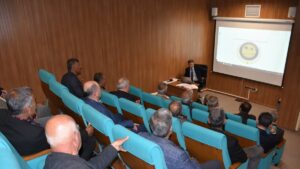


















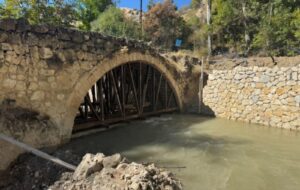

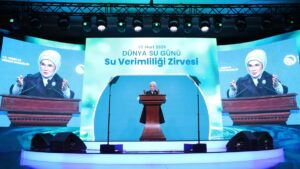

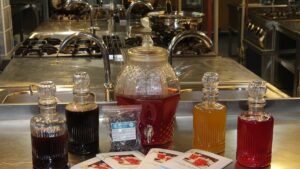

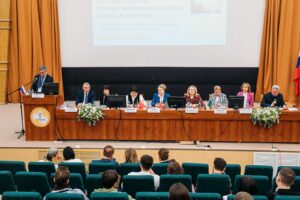








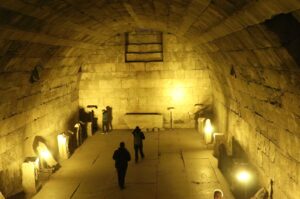

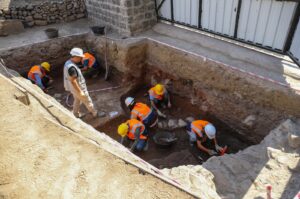


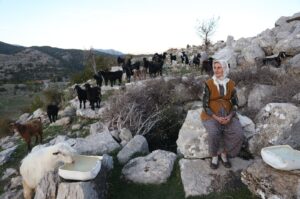


Be First to Comment